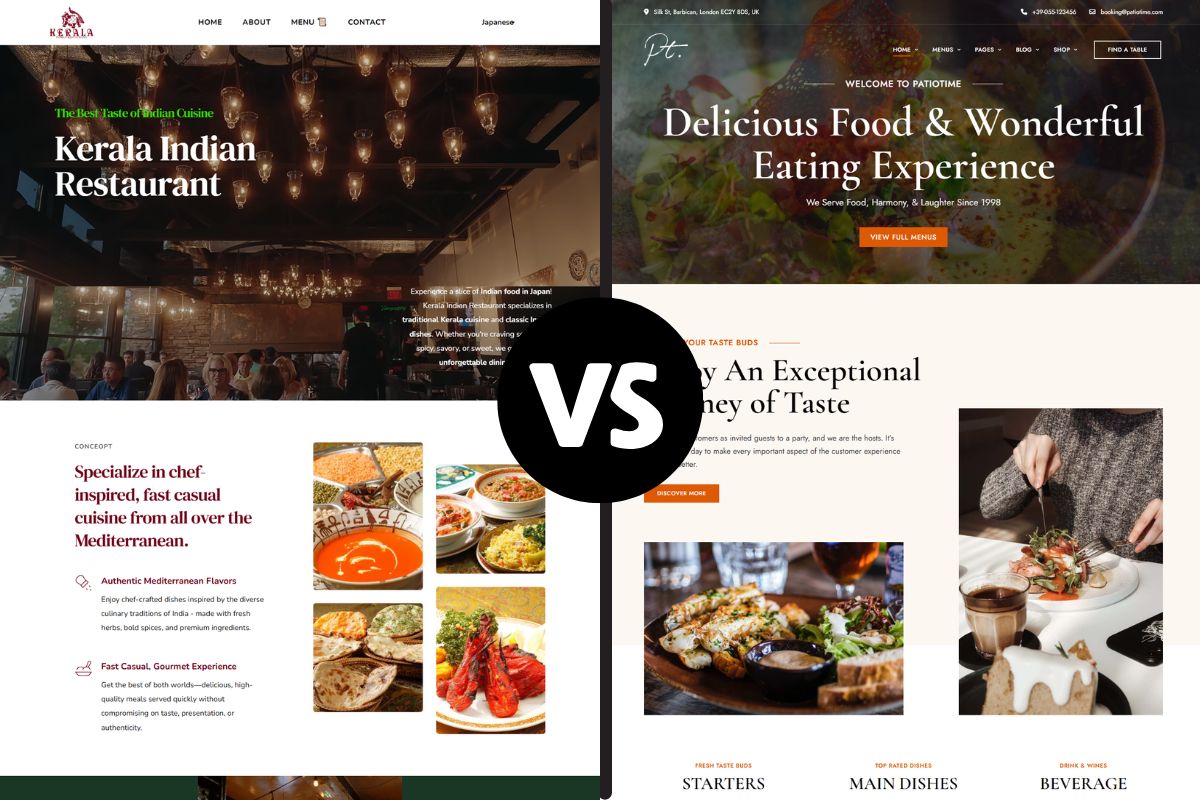Creating a website is a crucial step for any business, as it serves as the digital face of your brand. When contemplating between opting for a tailor-made website or utilizing a designed template, for your site creation journey; aspects like expenses involved customization options available scalability of the website and aligning with future aspirations should all be taken into account.
Here’s a side-by-side comparison table summarizing the differences between custom websites and template websites:
| Aspect | Custom Websites | Template Websites |
|---|---|---|
| Cost | High upfront cost due to custom design and development. | Low cost, often free or with affordable one-time or subscription fees. |
| Development Time | Takes weeks or months due to tailored development. | Quick to set up; can be ready in hours or days. |
| Uniqueness | Fully unique and tailored to your brand identity. | May look generic as many other businesses use the same templates. |
| Scalability | Highly scalable with the ability to add custom features as business grows. | Scalability is limited, especially for adding complex or custom functionalities. |
| SEO Performance | Custom-coded for clean, optimized HTML, making it better for SEO. | Limited SEO optimization depending on the template and platform. |
| Customization | Fully customizable to fit any specific requirement or design vision. | Limited to the features of the selected template; extensive changes may break the design. |
| Ongoing Maintenance | Requires professional maintenance and updates for security and functionality. | Easy platform-managed maintenance; automatic updates for most template-based platforms. |
| Performance | High performance with optimized code and faster load times. | Templates may include unnecessary elements, which can slow down the website. |
| Examples | Tech companies, global e-commerce brands, industries with unique needs (e.g., Amazon, Netflix). | Freelancers, small businesses, startups, or local shops (e.g., a bakery using Squarespace). |
| Best For | Businesses with long-term goals, high budgets, or unique/advanced requirements. | Startups, small businesses, those with basic needs, or limited budgets. |
Custom Websites
Creating a tailored website involves starting from scratch to tailor it to your businesss requirements and goals by collaborating with web developers and designers or even agencies for an online presence.
Advantages of Custom Websites
Uniqueness:
Creating a website is special because its designed completely around your brands identity.
Example: Nikes website showcases its brand identity with contemporary designs that go beyond templates to create a unique and engaging user experience.
Scalability:
Custom websites evolve as your business expands in scope and scale. If you require handling a range of products or services or incorporating interfaces such, as APIs or implementing advanced functionalities, like AI chatbots; tailored configurations offer the essential adaptability and versatility needed for seamless growth.
Example: Companies such, as Amazon began with operations. Grew into one of the most intricate e commerce platforms globally.
Tailored Features & Functionality:
Custom websites frequently incorporate functionalities tailored to cater to user needs;, for instance; reservation systems for accommodations or appointment scheduling utilities, for gym facilities.
Example: OpenTable enables individuals to discover and reserve tables at dining establishments through crafted features.
Search Engine Optimization (SEO):
Custom websites are often coded with clean, optimized HTML, delivering better SEO performance than many template-based websites.
Disadvantages of Custom Websites
Higher Costs:
Creating a website involves an initial investment attributed to the expenses related to professional design and development services.
Time-Consuming:
Creating a website could require an amount of time – possibly spanning weeks or even months – which might not align with the needs of businesses looking to establish an immediate online presence.
Template Websites
Template websites typically utilize made designs and elements that are commonly offered by Content Management Systems (CMS) such, as WordPress, Squarespace, Brizy Cloud and Wix among others. These ready to use templates can be easily adjusted to cater to fundamental business requirements.
Advantages of Template Websites
Lower Costs:
Using templates can greatly reduce expenses as they are often inexpensive options that suit businesses or startups well.
Example: Freelancers and small business owners commonly utilize platforms such, as WordPress themes or Shopify templates to develop their websites in a cost manner.
Quick Setup:
Setting up a website can be done in a matter of hours, to days by anyone with skills using simple drag and drop tools available.
Example: A nearby bakery could opt for a made design to display its goods and contact information online swiftly without the need, for developers.
Ease of Maintenance:
Platforms such, as Wix take care of updates automatically to ensure the website stays safe and functional with need, for intervention.
Extensive Design Options:
There is now an array of templates to cater to almost every sector out there with top tier themes frequently offering numerous customization possibilities to choose from.
Disadvantages of Template Websites
Lack of Originality:
Many companies often adopt formats to their rivals for their websites which can result in a lack of uniqueness, in design and content.
Example: A real estate company that utilizes a known WordPress theme may bear resemblance, to other similar agencies out there.
Customization Limits:
If you use templates on your site and later need to make changes, for business growth or to add a special feature that sets you apart, from others you might find them limiting in adapting to your evolving requirements.
Example: Integrating booking options or incorporating API connections could pose difficulties, within a predesigned framework template.
Performance Concerns:
Templates frequently come with installed elements that contribute unnecessary bulkiness and can ultimately decrease the speed of a website – causing potential implications, for user experience and SEO ranking factors.
Dependence on Platforms:
Template systems frequently restrict your choices by binding you to their environment; this can make it challenging to migrate if you opt for a content management system or hosting provider.
Which Is Best for Your Business?
The right choice depends on your business goals, budget, and timeline.
Custom Websites Are Best For:
- Established businesses or enterprises needing a complex, unique digital presence.
- E-commerce brands requiring scalable designs with custom functionalities.
- Brands looking to build out long-term digital marketing strategies where SEO and performance are critical.
Template Websites Are Best For:
- Small businesses or startups with limited budgets looking for a quick online presence.
- Businesses with simple requirements, such as showcasing services or contact information.
- Temporary or seasonal businesses that don’t need extensive features.
Examples:
- Custom Website: A luxury hotel chain may create a custom website with dynamic visuals and multi-language functionality to attract global visitors.
- Template Website: A local coffee shop might use a Squarespace template to showcase their menu, location, and contact form.





